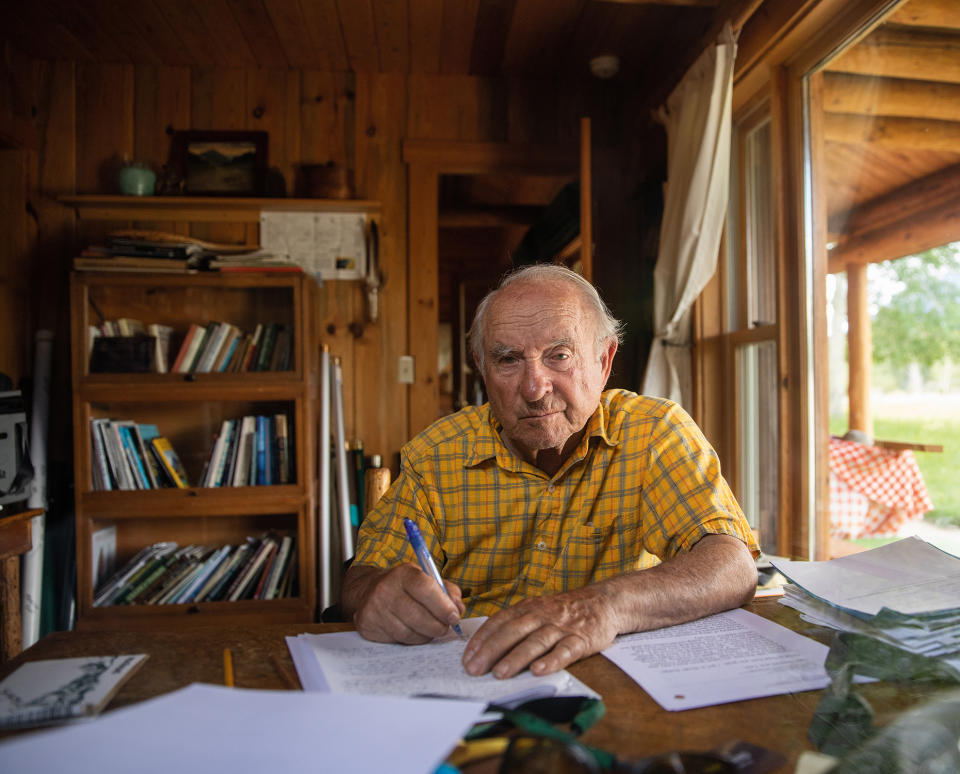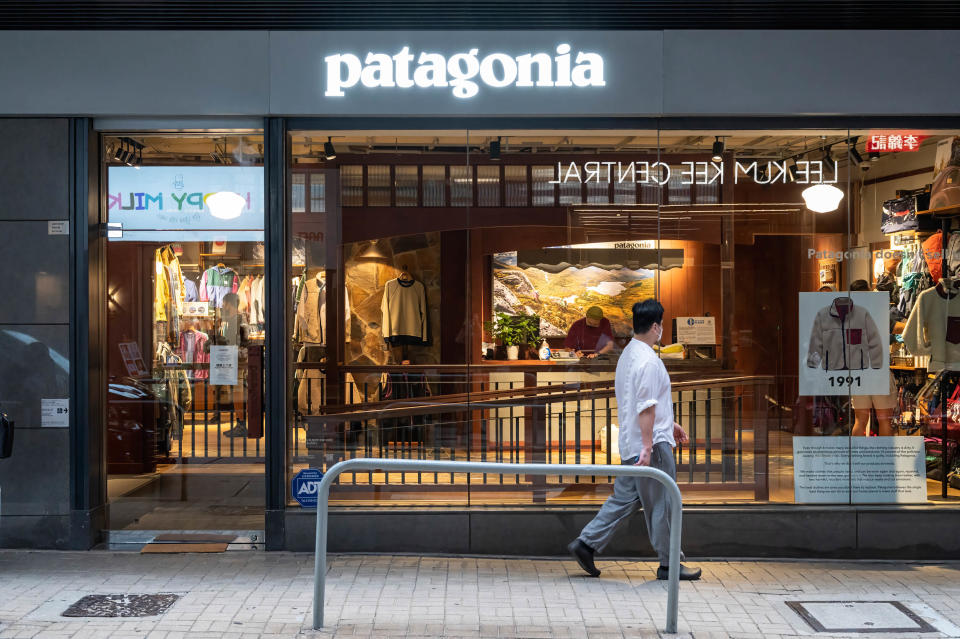Yvon Chouinard to Receive Outstanding Achievement Award at Fashion Awards in London

LONDON — Yvon Chouinard, founder of Patagonia, who transferred his ownership of the company in September to two new entities — the Patagonia Purpose Trust and the Holdfast Collective — will be recognized by the British Fashion Council with the outstanding achievement award at the Fashion Awards on Monday.
Caroline Rush, chief executive officer of the British Fashion Council, organizer of the annual fundraising spectacle and London Fashion Week, said Chouinard is being awarded as he sets “a new precedent for responsible businesses.”
More from WWD
“By building a brand that consistently encourages its consumers to buy well and buy less he has shifted consumer mentality on the life cycle of clothing and created an invaluable blueprint for a fair transition within the apparel industry,” she added.
While a Patagonia vest is considered a staple item among Wall Street elites, the company has prioritized the preservation and restoration of the environment since 1985, when it began to donate 1 percent of sales to environmental groups, handing out more than $150 million in total.
Chouinard, who declines to identify himself as a billionaire and prefers to be known as a mountain climber, activist, surfer, writer and philanthropist, has also cofounded One Percent for the Planet, a movement that attracts more than 5,000 businesses and individual members coming together to protect the Earth.
He said that with 50 years of experience in responsible business, Patagonia is “dead serious about addressing the environmental crisis.”
“We started by building durable, quality products and using materials that caused less harm to the environment and to the people who made them. We’ve been using 100 percent organic cotton across our line since 1996, are founding members of groups such as the Fair Labor Association and Regenerative Organic Alliance, and today offer more Fair Trade Certified sewn styles than any other apparel brand,” he said.
The company has been using 100 percent organic cotton across all lines since 1996 and is a founding member of groups such as the Fair Labor Association and Regenerative Organic Alliance, and today it offers more Fair Trade Certified sewn styles than any other apparel brand.
The recognition from the British Fashion Council, according to Chouinard, sends the message that “responsible business practices far outweigh trends or short-term financial gains.”
“With vision and creativity, the apparel industry is perfectly placed to set the standard for environmental protection — it is our hope that business leaders join us in committing to this work,” he added.

Charles Conn, chair at Patagonia, said in an interview with WWD that while the company doesn’t consider itself a fashion brand as it was founded by “a group of dirtbag outdoor athletes,” this recognition still “means a great deal to the people of Patagonia, as it sends out a clear message from the BFC about the importance of prioritizing the long-term future of our home planet.”
Conn, who is also a member of the European Council for Global Conservation, thinks that the apparel industry has “a reputation for being one of the most polluting historically — we all know we can do better, source sustainably and pay attention to our water and energy use and still make great garments.”
There are a few things Conn believes can be improved in the fashion industry in terms of pursuing a more sustainable future.
“We must start by being honest with ourselves and our customers about our negative impacts. Knowing where we cause the most harm and finding ways to truly reduce waste, water use and energy are the most important things we can all do right now. For example, at Patagonia, some 95 percent of our emissions come from our supply chain and materials manufacturing; cutting our direct emissions means nothing unless we consider the full scope — anything less would be greenwashing,” he said.
“We can all source recycled synthetic fabric and natural fibers from regenerative organic farming. Once we have started to clean up our own mess, as leaders we should find ways of using our business voice and resources in support of environmental protection and the grassroots groups working tirelessly to find solutions to the climate crisis,” he said.

The change of Patagonia’s corporate structure — “going purpose” instead of “going public” and declaring that the Earth is its only shareholder — was considered a trailblazing move.
The Patagonia Purpose Trust now owns all of the company’s voting stock, or 2 percent of the overall shares, and creates “a more permanent legal structure to enshrine Patagonia’s purpose and values.”
“It will help ensure that there is never deviation from the intent of the founder and to facilitate what the company continues to do best: demonstrate as a for-profit business that capitalism can work for the planet,” the company said.
The Holdfast Collective owns the other 98 percent of the company and will “use every dollar received from Patagonia to protect nature and biodiversity, support thriving communities and fight the environmental crisis.”
Profits not reinvested back into the company — about $100 million annually depending on the business — will be paid as a dividend to the collective.
Conn said the change in company structure has been “a major motivator for the Patagonia teams working around the world, giving us a renewed focus in our efforts.”
“Internally it has brought new inspiration rather than a change in trajectory – we have been supporting grassroots groups around the world for decades, as well as encouraging customers to reduce consumption, repair, reuse and recycle. Our hope is that it will act as a catalyst for other businesses to bring purpose into their operations and join us in working for a better future,” he said.
Previous recipients of the outstanding achievement award at the Fashion Awards include Giorgio Armani, Miuccia Prada, Ralph Lauren, Karl Lagerfeld, Anna Wintour and Manolo Blahnik.

 Yahoo Finance
Yahoo Finance 